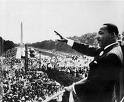Nu sculon herigan heofronrices Weard
Now we must praise heaven-kingdom's Guardian,
Meotodes meahte and his modgeþanc
the Measurer's might and his mind-plans,
weorc Wuldor-Fæder swa he wundra gehwæs
the work of the Glory-Father, when he wonders of every one,
ece Drithen or onstealde
eternal Lord, the beginning established.
He ærest ielda bearnum
He first created for men's sons
heofon to hrofe halig Scyppend
heaven as a roof, holy Creator;
ða middangeard moncynnes Weard
then middle-earth mankind's Guardian,
ece Drithen æfter teode
eternal Lord, afterwards made-
firum foldan Frea ælmihtig
for men earth, Master almighty
In the seventh century, Cædmon was a farmhand on a monastery. He was illiterate, but he was given visions, and through those visions, he created the first poems in the English language. In this single poem, Cædmon uses eight different names for God, including, Weard, meaning guardian.
The poem is very Germanic in the design. In having two half lines and stressed syllables in each, and two more unstressed that are linked by alliteration. The symbol æ stands for the modern day vowel sound in "cat"; while the symbols þ and ð stand for the modern th sound.
This poem was spoken and written in a very natural and less than religious time period. It was even a time where Pagan rituals and followers were more than any others.
http://www.archive.org/details/caedmon_librivox
skip to main |
skip to sidebar
Sam (quote by Martin Luther King Jr.) Darkness cannot drive out darkness; only light can do that. Hate cannot drive out hate; only love can do that. Hate multiplies hate, violence multiplies violence, and toughness multiplies toughness in a descending spiral of destruction....The chain reaction of evil--hate begetting hate, wars producing more wars--must be broken, or we shall be plunged into the dark abyss of annihilation.
Pages
8th Grade blog links
- Abby Brodbeck
- Alaina Mundt
- Allison Samuel
- Alyssa Meka
- Autumn Johnson
- Brad Wahlgren
- Caitlin Osborne
- Cara Malone
- Chandler Bentley
- Claire Wagner
- Collin Kane
- Delaney McCabe
- Derek Jacobs
- Erin Magennis
- Hannah George
- Jared Abbot
- Jenna Kazmarski
- Jordan Olson
- Justin Magoon
- Katelyn Mistele
- Kelsey Morgan
- Maggie Papka
- Matt Lupo
- Matt Thurman
- Morgan Patterson
- Mr. Johnson
- Natalie Sheridan
- Ryan Harris
- Ryan Hegna
- Sammy Marz
- Sophia Barash
My Goals
1. I will successfully incorporate at least two of my the words on my vocabulary list in my next essay.
2. I will successfully use at least two semantic devices in my next posting.
3. In my next essay, I will successfully implement all a/b transitions.
2. I will successfully use at least two semantic devices in my next posting.
3. In my next essay, I will successfully implement all a/b transitions.
Words I want to use
Ambiguous
Bias
Conceit
Valid
Antique
Conspicuous
Credulous
Heretic/Heresy
Bias
Conceit
Valid
Antique
Conspicuous
Credulous
Heretic/Heresy
